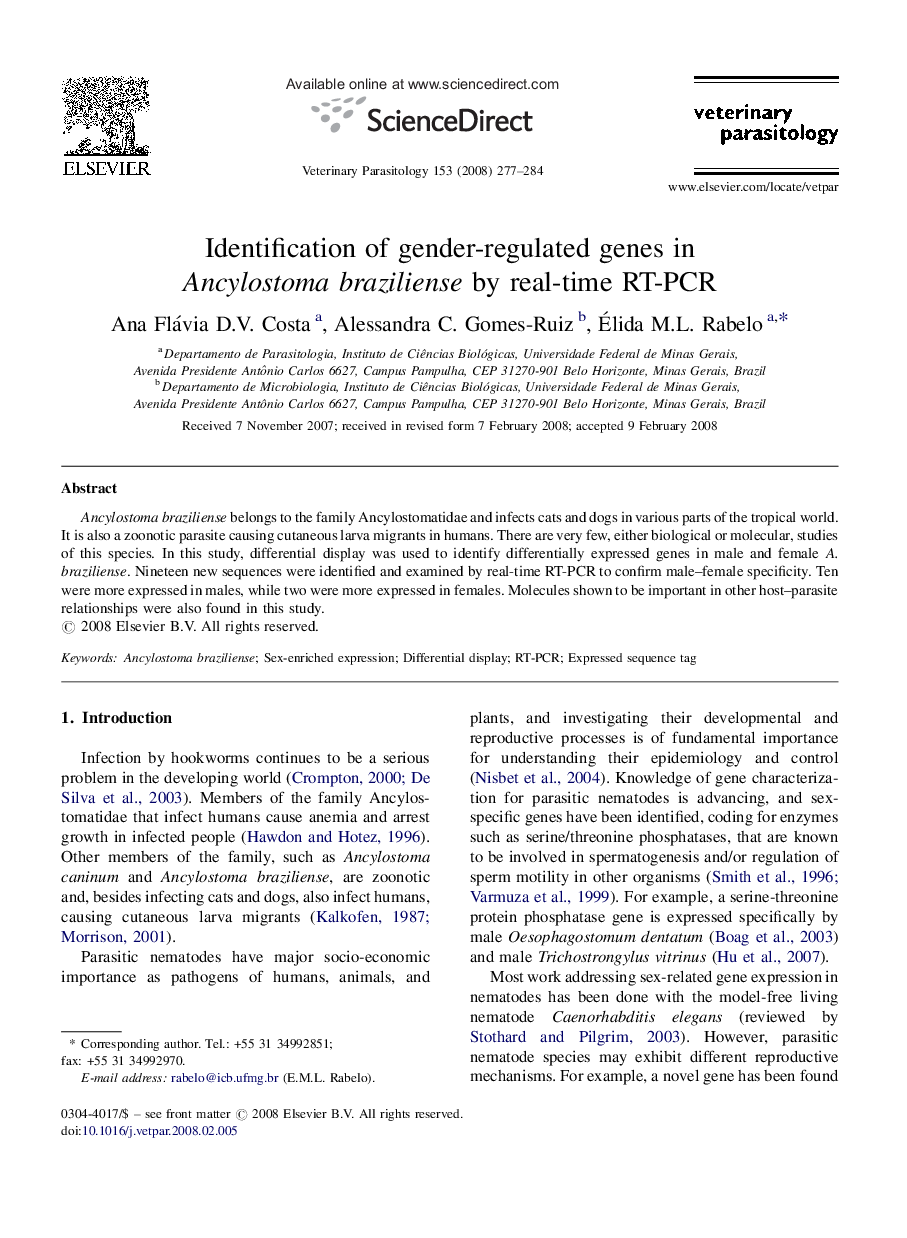| Article ID | Journal | Published Year | Pages | File Type |
|---|---|---|---|---|
| 2471714 | Veterinary Parasitology | 2008 | 8 Pages |
Abstract
Ancylostoma braziliense belongs to the family Ancylostomatidae and infects cats and dogs in various parts of the tropical world. It is also a zoonotic parasite causing cutaneous larva migrants in humans. There are very few, either biological or molecular, studies of this species. In this study, differential display was used to identify differentially expressed genes in male and female A. braziliense. Nineteen new sequences were identified and examined by real-time RT-PCR to confirm male–female specificity. Ten were more expressed in males, while two were more expressed in females. Molecules shown to be important in other host–parasite relationships were also found in this study.
Related Topics
Life Sciences
Agricultural and Biological Sciences
Animal Science and Zoology
Authors
Ana Flávia D.V. Costa, Alessandra C. Gomes-Ruiz, Élida M.L. Rabelo,
